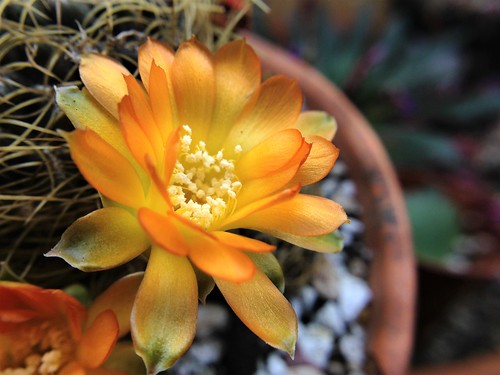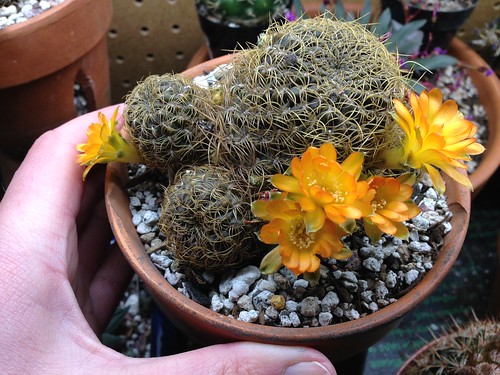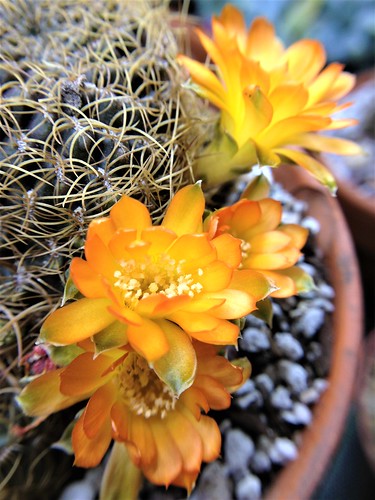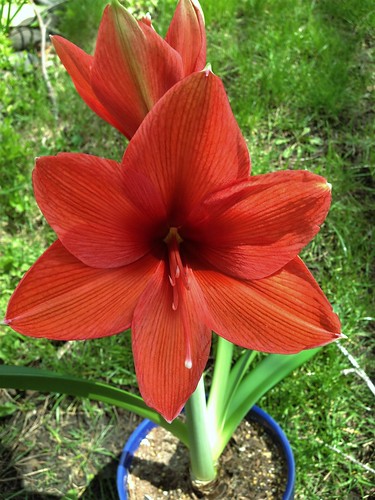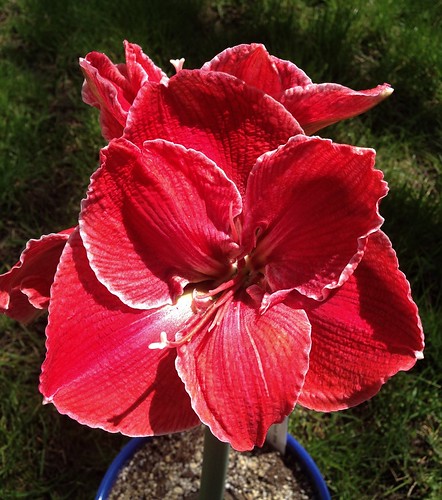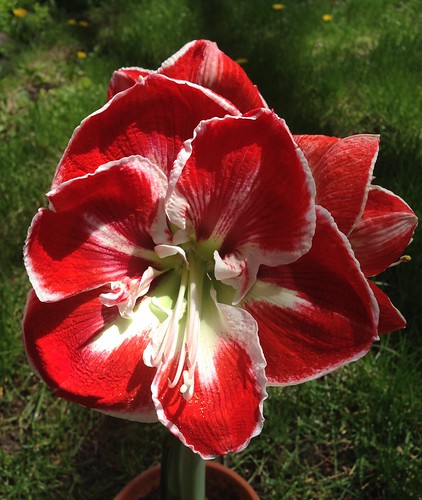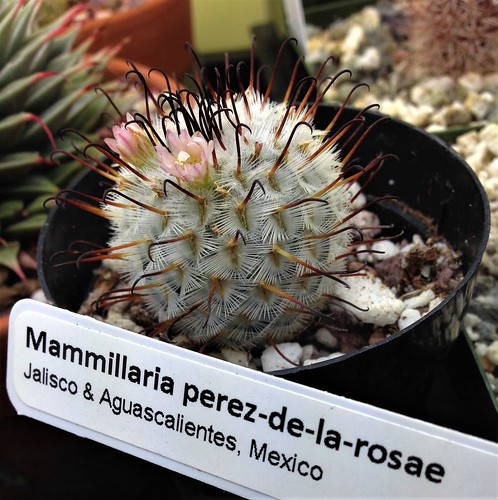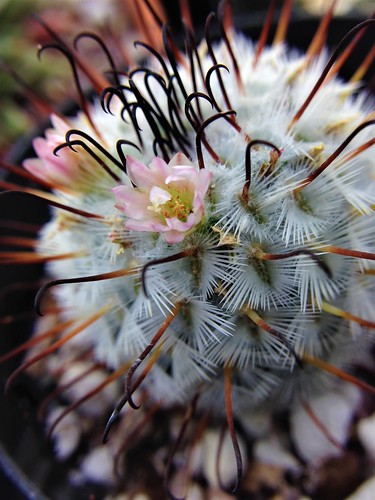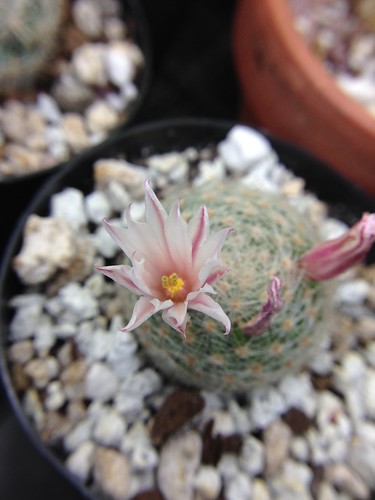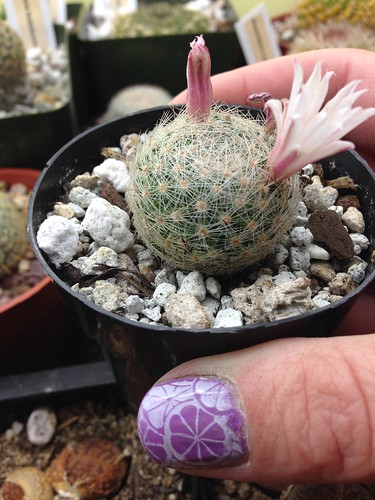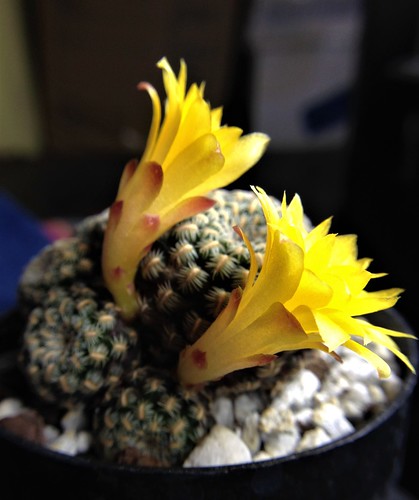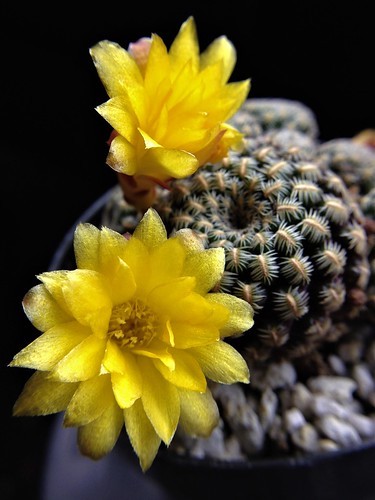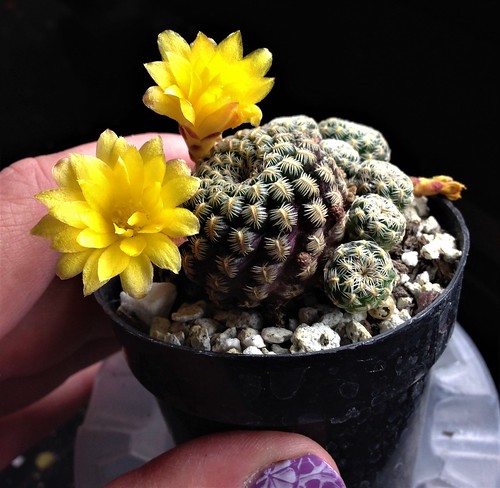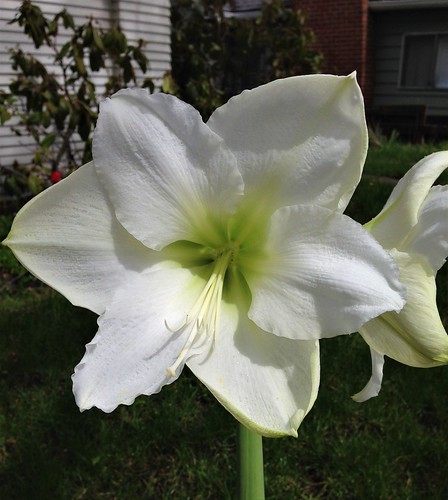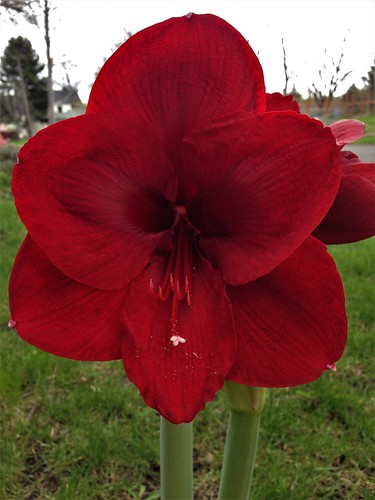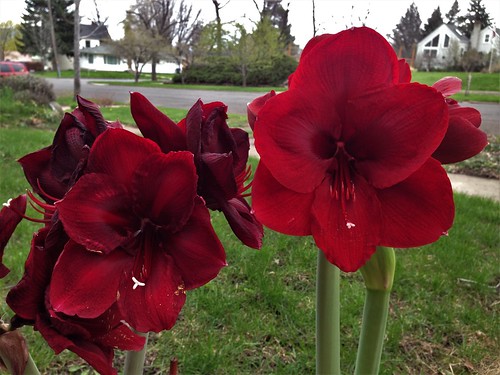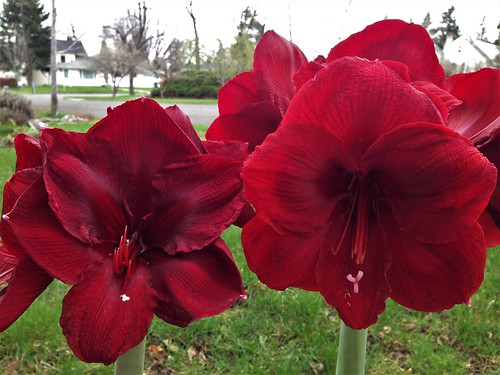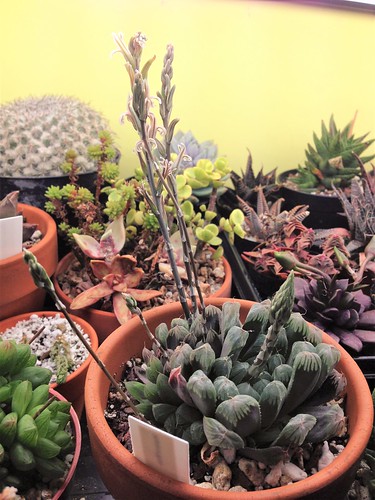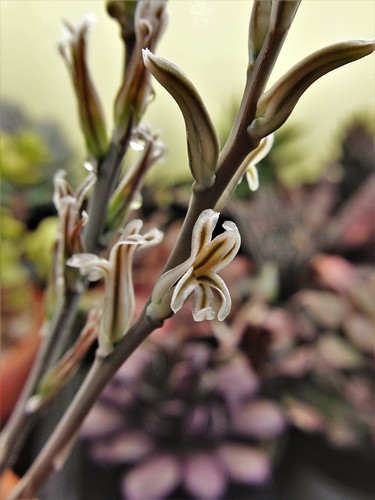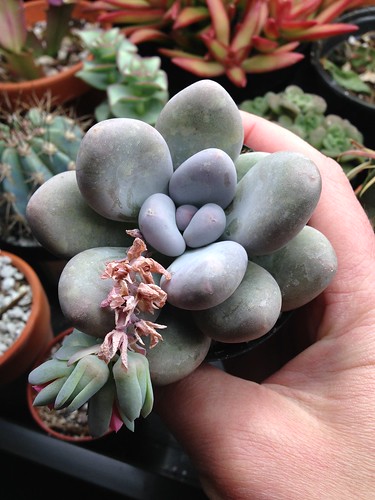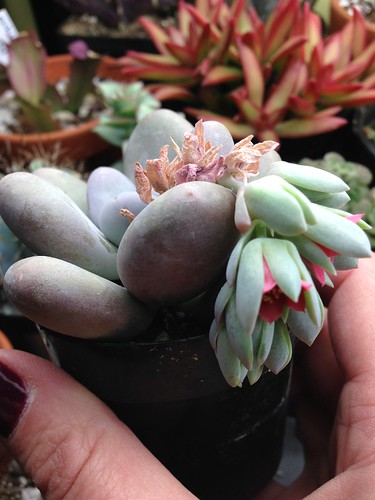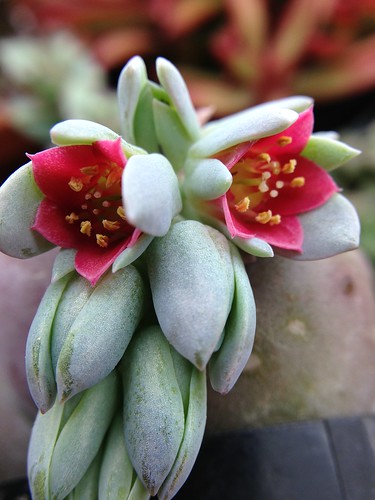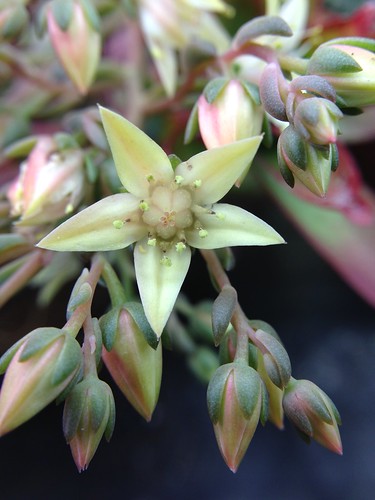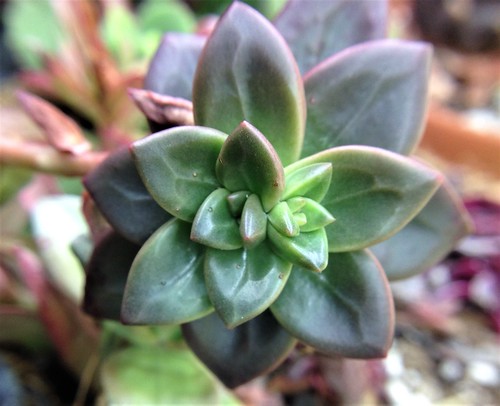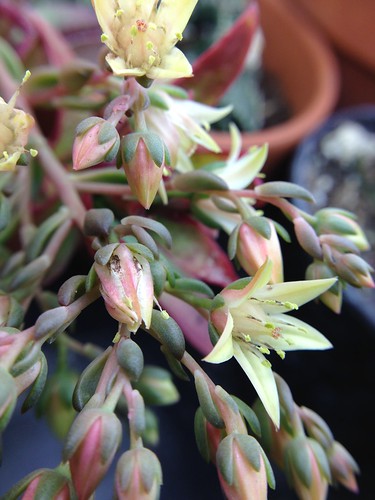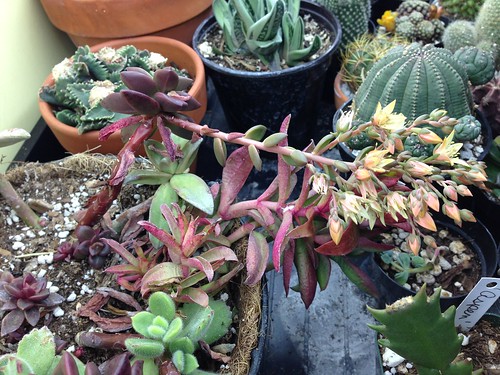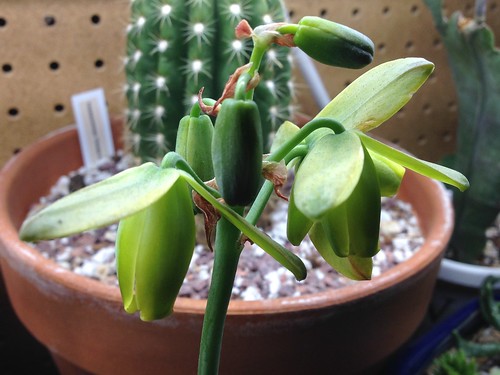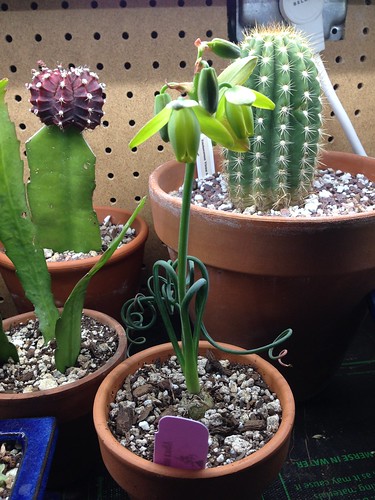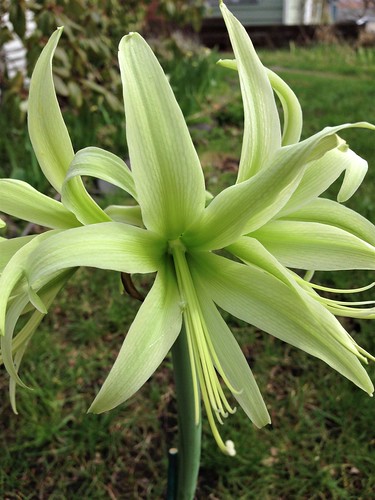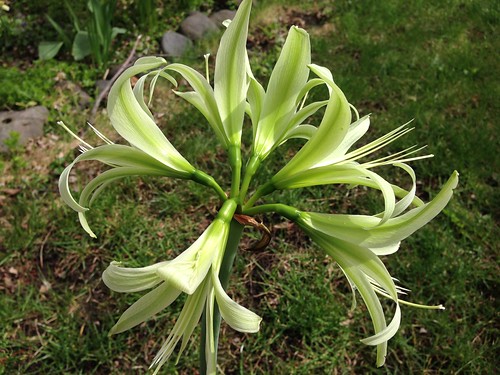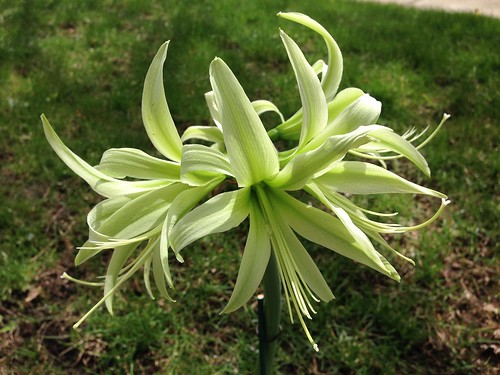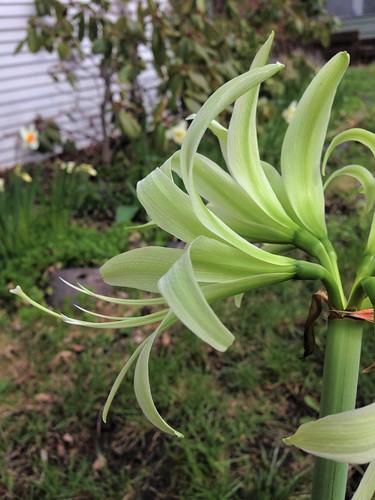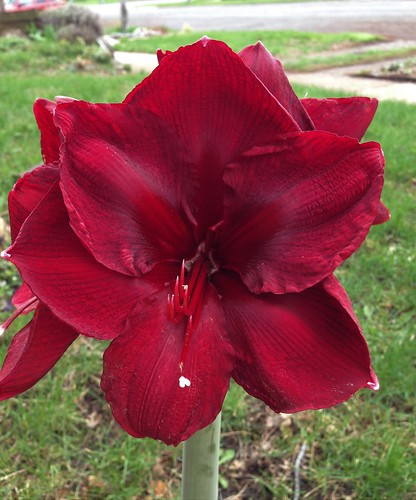Cacti and succulents... I've got to say, they are very rewarding. Somehow I had it in my head that it was hard to get a cactus to bloom.
I have too many blooming or almost blooming right now to give each its own post- I would never catch up. So here's an anthology version of what caught my eye yesterday.
Mammillaria elegans, native to Mexico, is...dare I say it... elegant. Tidy white spines, a compact globe form, and pretty pink flowers. The scarred ring is where the horrible strawflower was hot glued in the center growth point when I got it last year. I guess the damage makes it easy to see how much the plant has grown in a year. There is a complete ring of buds, a crown.
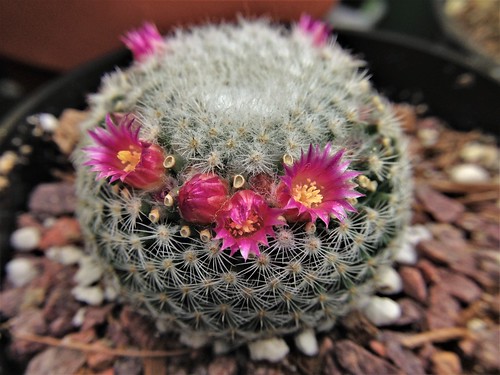
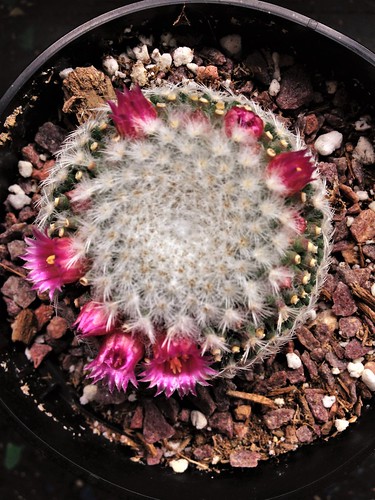
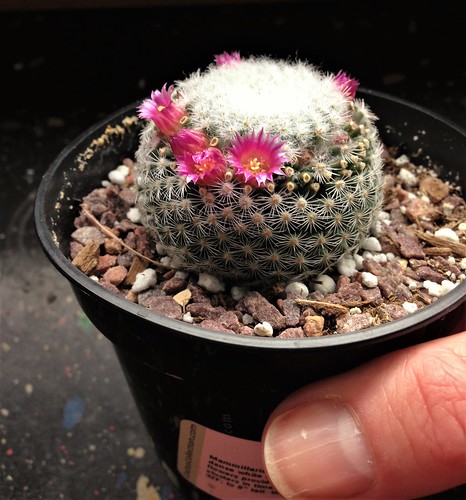
Next is
Pachyveria 'Little Jewel'. This is an intergeneric hybrid between
Pachyphytum and
Echeveria like the
Pachyveria Claire I showed a while ago. I really like the way the leaves on this one look faceted, and the flowers are lovely.
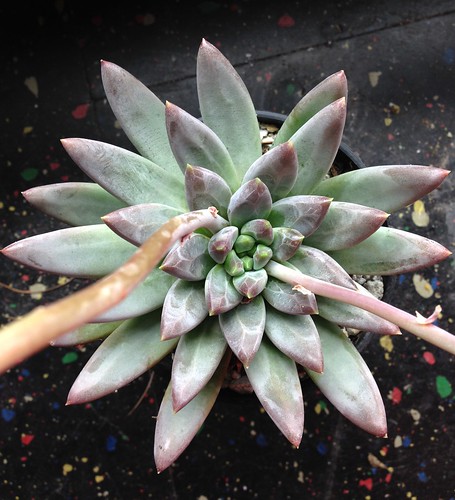
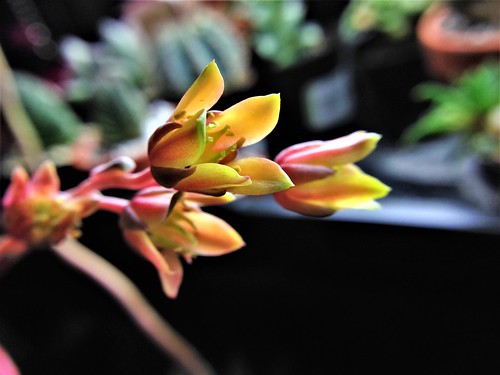
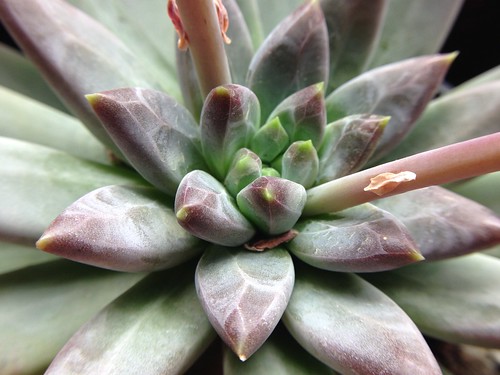
Next is a repeat show for the blog. I first posted about this
Mammillaria backebergiana at the end of March, when only two flowers were open. Now there are six more and the original two have faded. This show will last a good long time.
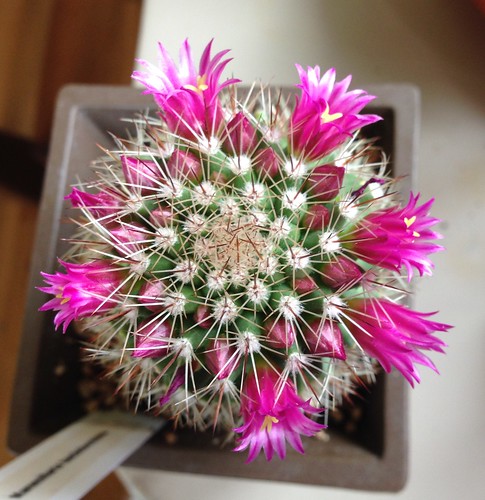
Next is
Lewisia longipetala 'Little Raspberry'. This is a commercial cultivar of a native Northwest plant. It's glorious. I have it growing inside in a pot for now, but may plant it outside after it's done blooming. Maybe not, though. It requires excellent drainage, so it might be better off staying in the pot even when it goes outside.
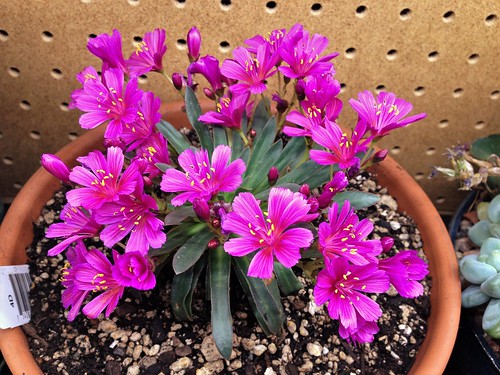
Then there's this little beauty. This is
Schwantesia borcherdsii, a mesemb native to southern Africa like the
Lithops and
Pleiospilos and all those other cool little plants. This is a very beautiful flower, with its silky yellow petals, and much bigger than I expected it to be!
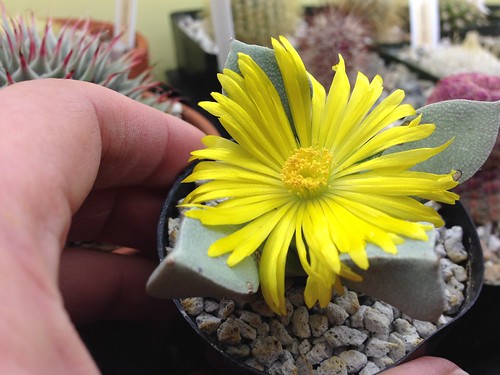
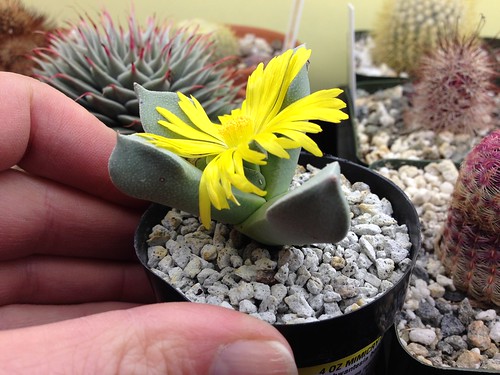
Last but not least, another repeat. The
Echeveria Ramillette is in full bloom now, and so pretty. Some of the older flowers have faded, but the tips of the inflorescences are still going strong.
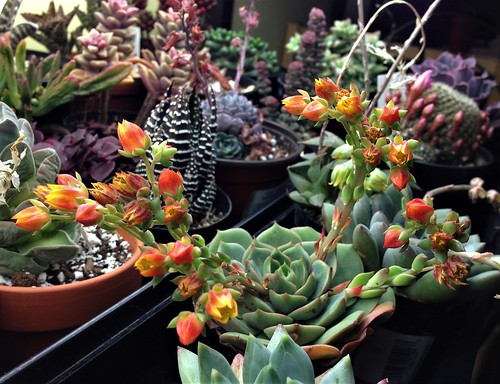
Whew. So there you go for today.
(P.S. See that blurry round cactus in the top right corner of that last picture? Yes, those pink things are all buds! Stay tuned!)
